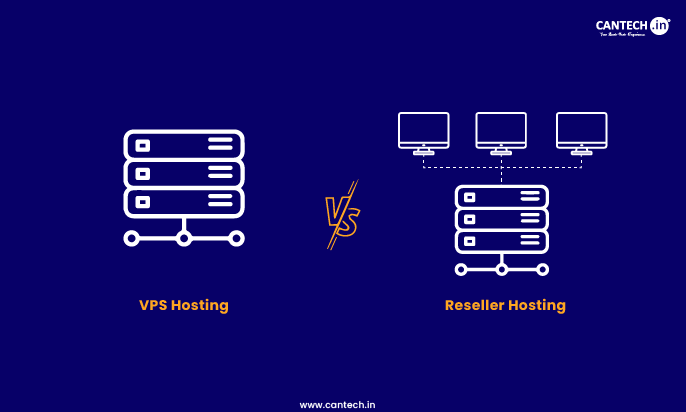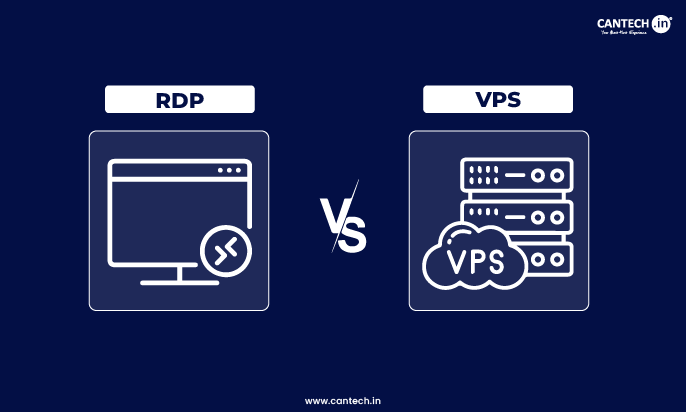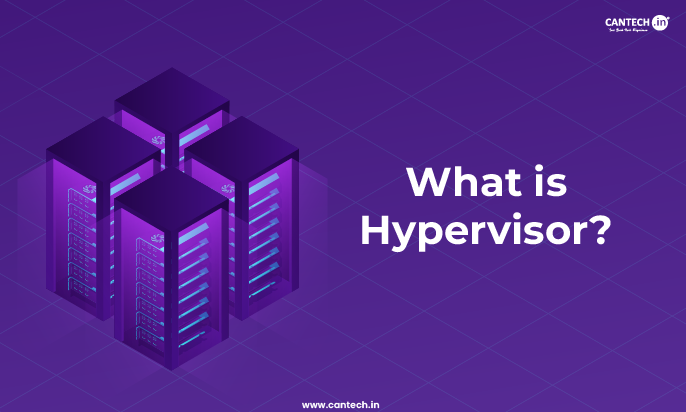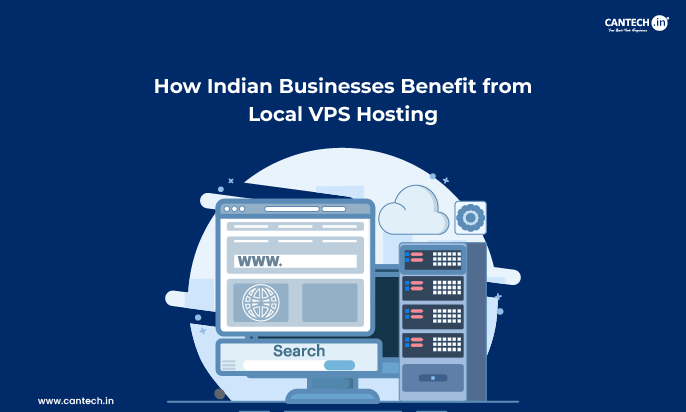Virtual Private Servers and Virtual Private Networks are fast becoming a part of the growing digital world. Since both have similarly sounding acronyms, one may wonder what the difference between them is. Knowing what each does helps an individual or business decide its needs: a VPS, a VPN, or maybe both.
The two are mainly designed towards the provision of online safety and anonymity, which in essence makes it a package that will be of convenience and benefit for anyone who holds values of preventing data breaches or surveillance as well as geo-restrictions from reaching his or her audience. This is because once data is encrypted and even your IP address is disguised, no one can interfere with what you are using the internet for.
Whereas VPS hosting is well suited to developers, small companies, or individuals whose applications are scalable and separate, running them, or those interested in web hosting. VPS technology supports the independent operation of a mini server within a larger machine and guarantees reliability without going into the expense of renting a dedicated server.
VPSs and VPNs: What are they, how do they work, and why choose one over the other? We are going to dive into some technical aspects and compare them to make the right decision by the end of this article.
What is a VPN?
A Virtual Private Network, VPN, simply put, is a kind of service that encrypts your internet connection, granting you the ability to access web surfing safely and privately. Therefore, it means that when someone accesses the web behind a VPN, it will mask his IP address by taking his connection to a safe server. In summary, it is said that a VPN simply stands as a kind of digital tool for protecting the data of an individual from other’s eyes, particularly when an individual is employing some kind of unsecured network.
Consider, for example, that you walk into a coffee shop connecting to the public free internet there to send an email or scroll social media. Most public Internet connections aren’t encrypted, hence the correct tools can grab all that data. So, where does a VPN come into play? That VPN can cover your web activity. This way even if it is snooped upon; all that this snooper will see would be junk data that doesn’t read anything.
In addition to security, VPNs open up the digital world for you. So, with a VPN, you can connect to a server based somewhere else in the world, and gain access to content and websites restricted in your region. For example, if a particular streaming service or news site is not accessible in your country, you can use a VPN to bypass the restrictions and it would make it available to you as if you were surfing from there.
On top of all these benefits, VPNs are incredibly useful for maintaining privacy online. With rising concerns about data tracking and invasive ads, using a VPN can help keep your online identity hidden. Your internet service provider (ISP), advertisers, and even search engines won’t be able to trace your browsing activity back to you, giving you an added layer of control over your digital footprint.
Why Use a VPN?
VPNs are useful in several ways, especially for individuals and companies that have security and privacy concerns online. Here’s why people in general use VPNs:
- Privacy: The use of VPNs ensures that your identity is masked, as your IP address and location are hidden. This is quite helpful to those who don’t want to be traced and monitored.
- Limited Access Content: The VPN will allow a user access to content limited to a country. This can be accessed primarily on geo-blocked streaming services and websites.
- Secure browsing on public Wi-Fi: Browsing public Wi-Fi is not typically very safe as some networks are unencrypted. Most cyber criminals find it quite easy to carry out illegal activities while using this route. Encryption of data makes it safe to access the network with a VPN.
How Does a VPN Work?

This sets up a secure, encrypted tunnel between your device and the VPN server, through which your data travels; your data cannot be intercepted or tracked. When you activate a VPN, it reroutes your internet connection through a remote server, hiding your IP address. For example, if you are in the US and you connect through a VPN server in Canada, the websites you visit will think you are accessing them from Canada. This function is especially useful in evading geographical restrictions and protecting internet traffic.
What is a VPS?
A Virtual Private Server, abbreviated as VPS, is a virtualized server environment on a physical server and is designed to function separately from other users on the same hardware. VPS hosting offers the reliability and control of a dedicated server, as each VPS operates with its resources and independent operating system. This gives the user more control, so VPS is a great choice for businesses and developers who require specific configurations.
One of the best benefits of a VPS is its scalability. When your website or application is expanding, a VPS allows easy resource expansion without a new hosting environment move. This would be excellent for businesses projecting growth, as a VPS can adapt to increasing traffic and data demands. Another benefit to VPS hosting is typically to be included is root access, which means that users are given absolute control over their server, in terms of installing and configuring software, customizing server settings, and optimizing performance.
A VPS also strikes a great balance between cost and functionality. While it’s not as costly as a fully dedicated server, a VPS still provides many of the same benefits—making it a budget-friendly yet powerful choice. For businesses or developers looking to run customized applications, set up complex websites, or work with unique configurations, a VPS is an excellent middle ground that provides flexibility, control, and reliability. Now that we have learned what is VPS? Let us now understand what is a VPS used for?
Why Use a VPS?
VPS hosting serves the needs of clients who require a reliable server environment but do not need the overhead that comes with a dedicated server. Among the top reasons to use a VPS are:
- Enhanced Control: In a VPS, an individual is guaranteed to enjoy full root access that grants an individual the capability of adding software and making direct installations to the system.
- Isolated Resources: With VPS, the resources available for your virtual machine will be isolated to you; this will not cause resource-related problems as usually is the case with other people.
- Scalability: A VPS can be scaled up if the demand increases.
What is a VPS, and How Does it Work?
To create multiple isolated instances in one physical server, the virtualization technology is highly relied upon by VPS hosting. Each VPS is independent and runs the operating system; each instance has dedicated resources. Just as in a large, physical server, there are separated sections with allocated memory, storage, and processing; this is what makes it easy for every VPS to run independently, providing their users with flexibility and freedom.
VPN vs VPS: Key Differences
The difference between VPS and VPN lies mainly in their purposes and functionalities:
- VPNs are focused on online security, privacy, and access. They protect data by encrypting it and concealing your IP address, making VPNs valuable for individuals and companies needing secure, unrestricted internet access.
- VPSs, however, are designed as server solutions for hosting applications, websites, or databases. A VPS offers control over a virtualized server environment and is suitable for businesses and developers needing isolated resources and customization.
- When comparing VPS and VPN, consider what you aim to accomplish. A VPN serves security-conscious users, while a VPS benefits those requiring an adaptable server environment.
Why Choose a VPS or VPN?
Why use VPN?
VPNs are excellent choices for people looking to boost their online privacy and access content freely. If you travel frequently, work remotely, or are concerned about data privacy, a VPN can give you peace of mind. It’s an essential tool for anyone wanting to protect their digital footprint.
Why use VPS?
A VPS is ideal for businesses and developers needing a scalable, customizable hosting solution. Whether you’re hosting a website, developing applications, or managing databases, a VPS provides you with the flexibility and control of a dedicated server without the higher costs.
Is a VPN Better than VPS?
The question “Is a VPN better than VPS?” depends entirely on your objectives. If you prioritize privacy and secure browsing, a VPN will serve you well. However, if you need a server environment with more control and customization, a VPS is a better choice. In essence, one is not necessarily better than the other; they serve different functions.
VPS vs VPN Comparison: What’s the Difference?
When it comes to choosing between a Virtual Private Server (VPS) and a Virtual Private Network (VPN), understanding the key distinctions can help clarify which option best suits your needs. Here’s a detailed look at the primary differences.
Purpose and Use Cases
A VPS is essentially a hosting solution for users who require a dedicated environment to host websites, applications, databases, or other software. VPS provides every user with a private slice of a physical server and ensures their dedicated resources such as CPU, RAM, and storage. This makes it useful for businesses, developers, or individuals requiring control, scalability, and reliability for their online projects.
With this, VPNs work at encrypting data as well as hiding IP addresses and securing internet connections through the confidentiality of user data. Hence, users with a VPN can access content on certain sites, stay secure during browsing over public hotspots, and secure any sensible data against possible cyber-attacks. VPNs therefore highlight more on privacy and secure data handling as opposed to hosting or computing functionality. As such, it should be of immense importance both to internet users at different levels and business sectors especially those who regard security and safety paramount.
Security and Privacy
VPNs are primarily focused on security, using encryption to protect data during online activities. That is very critical in your quest to use the internet to connect with the public or unsecured networks. A VPN is significant for hackers and surveillance, in that they may sniff into your data as well as the data in your potential browsing on the internet. Many users who take a VPN benefit from its provision of privacy because they keep one away from their internet service providers and third parties observing their internet usage and so provide peace of mind towards securing their data.
On the other hand, VPS hosting does provide a sense of security but in a different sense of the term. Since every VPS comes with dedicated resources, it’s isolated from other users on the same server, eliminating many risks of shared hosting. Nonetheless, VPS does not inherently encrypt data like a VPN would, so users should add such measures according to the level of sensitive data. It is more about protecting hosted applications and data from other server users rather than protecting internet privacy in a VPS.
Cost Considerations
In principle, VPS and VPN services will have different kinds of price models depending upon usage as well as purpose. There tends to be VPS somewhat more costly than the VPN of richer resource supply as well as options and even for control and customization options within mini-servers which will also act small scale for a dedicated server-thus demanding more of its kind of infrastructure and consequently even more of the upkeep-an investment. The best case scenario for some guy that wants to put out there is his website as searching for flexibility control and performance, VPS to an extent is worthwhile adding cost.
VPNs are usually more affordable because most of them are only focused on internet security and privacy and not hosting. Most of the VPN providers offer both monthly and yearly plans relatively cheaper than VPS. A VPN is therefore cheap for users who want internet security or access geo-blocked content without a deep pocket. This is mainly why users base their selections on budget and needs as most of them have a variance in prices.
Customization and Control
VPS hosting is an excellent option that provides users with control of their environment since it offers full root access and personal customization. VPS hosting flexibility enables a user to install custom software, configure the server, and even optimize it for optimum performance. Hence, VPS hosting is ideal for developers and companies that require specific configurations since VPS hosting acts exactly like an exclusive private server space; everything ranging from the installed application to resource utilization happens precisely at the discretion of the user.
VPNs are not as customizable. A VPN only intends to deliver safe internet connectivity, and hence there is less control, like choosing the server locations or privacy settings. The whole idea behind VPNs is ease of use. VPNs just want you to be able to connect and start browsing safely without technical configurations. This makes the management of VPNs more uncomplicated and easy for non-technical users who primarily keep their focus on the privacy aspects of data rather than taking care of the management tasks of servers.
Conclusion
Both VPS and VPN have their unique advantages. They are not interchangeable but can complement each other based on what you need. VPNs are essential for individuals or businesses needing to secure their online connections, access restricted content, and ensure privacy. Conversely, VPS hosting offers a stable, isolated environment for websites and applications, enabling users to maintain control over their servers without the high cost of dedicated servers.
Choosing between a VPS and a VPN depends on whether you’re focused on internet privacy or need a robust hosting environment. In some cases, both solutions might be appropriate. By understanding the difference between VPS and VPN, you can make an informed decision and utilize these tools effectively to enhance your online presence and security.
FAQs
Is a VPN the same as a VPS?
No, a VPN (Virtual Private Network) and a VPS (Virtual Private Server) serve different purposes and are not the same. A VPN is a tool for securing internet connections by encrypting data and masking IP addresses to protect user privacy and data, especially on unsecured networks. A VPS, on the other hand, is a virtual server hosted on a physical machine, used mainly for hosting websites, applications, and other software. While both provide online functionalities, VPNs focus on security and privacy, while VPSs emphasize control, performance, and hosting flexibility.
Which is better: VPS or VPN?
Choosing between a VPS and a VPN depends on your needs. A VPS is ideal for users who require a dedicated virtual environment for hosting websites, applications, or databases, with greater control over server configurations. It’s particularly valuable for businesses and developers needing a stable hosting solution. A VPN, however, is better for users looking to enhance online security, protect privacy, and bypass geographic restrictions. The “better” option depends on whether your primary need is hosting with control (VPS) or secure, private internet access (VPN).
Can I use a VPN and VPS together?
Yes, you can use a VPN and VPS together, as they are compatible and serve different purposes. Using a VPN with a VPS is a common practice for those who want both secure online access and control over a hosting environment. For instance, when connecting remotely to your VPS, a VPN can help encrypt that connection, adding an extra layer of security. Combining both can be beneficial for individuals or businesses managing sensitive data on a VPS who also want to ensure their online activities are private and secure.
Why would I need a VPS instead of a VPN?
You would need a VPS instead of a VPN if you require a hosting solution with greater control and scalability. A VPS offers dedicated resources that enable you to host websites, applications, databases, and more, with full customization over server settings. This makes a VPS suitable for developers, businesses, or individuals with advanced hosting requirements. A VPN, by contrast, is specifically for securing internet connections and does not provide the necessary infrastructure for hosting or running online applications.
Can I host a website using a VPN?
No, a VPN cannot be used to host a website. A VPN is designed solely to secure internet traffic and protect user privacy by encrypting data, making it unsuitable for website hosting. Website hosting requires a server environment with dedicated resources like storage, CPU, and RAM, which a VPS provides. A VPS is intended for hosting websites, applications, and other server-based tasks, offering the performance, control, and scalability needed for hosting, while a VPN simply enables safe and private internet browsing.






